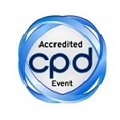
Sumaiya Mohamed
Centre for the study of violence and reconciliation(CSVR), South Africa
Title: The impact of war and the on-going challenge to survive as a refugee in South Africa on mental health and resilience
Biography
Biography: Sumaiya Mohamed
Abstract
The Centre for the Study of Violence and Reconciliation is a non-governmental organization that provides psychological services to torture survivors, with the aim of promoting psychosocial rehabilitation and mental wellbeing. A large group of individuals that we work with in the trauma clinic are refugees and asylum seekers coming from war torn countries in Africa, who are either direct or indirect torture survivors. Clients that come to the trauma clinic present with a wide spectrum of mental health disorders and current stressors. Common mental disorders that clients present with at the trauma clinic include: Post Traumatic Stress Disorder; Anxiety Disorders; Depressive disorders; Somatic disorders; and Psychosis. Coupled with this, clients face a number of current stressors in South Africa that impact on their mental wellbeing further. These current stressors include: Bereavement and loss; social isolation; adapting to a new environment; family breakdown; getting medical, legal and social needs met; and safety concerns. Taking into account the mental disorders presented in clients and their experience of current stressors that further impact on their mental wellbeing, we see a myriad of complexities that we work with in therapy with these clients. Reactions to these experiences are usually the result of a complicated interplay between past traumas (psychological impacts stemming from the torture experience in the country of origin), current stressors, and risk and protective factors. Using information gathered on the CSVR’s centralized M&E system as well as through clinical reflections on therapy with torture survivors, this paper explores the complexity of providing psychosocial services to survivors of torture in contexts of continuous traumatic stress and daily stressors. The implications for therapy in such situations are explored.

